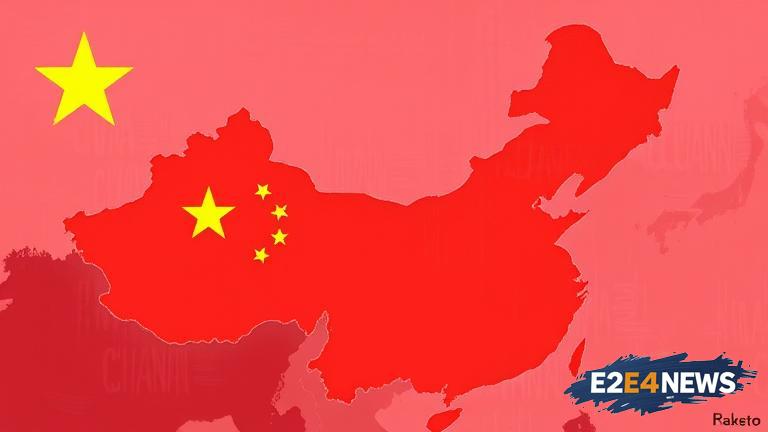The South China Sea has been a point of contention for many years, with several countries claiming sovereignty over the region. China, in particular, has been accused of taking an aggressive approach in asserting its claims, which has led to increased tensions with neighboring countries such as the Philippines, Vietnam, and Malaysia. Recently, China has been urged to adopt a more pragmatic approach in resolving these disputes, with a focus on finding mutually beneficial solutions. This approach would involve China engaging in diplomatic efforts to resolve the disputes, rather than relying on military might. The United States has also been involved in the dispute, with the US Navy conducting freedom of navigation operations in the region. These operations are aimed at challenging China’s claims and ensuring that the seas remain open to all countries. Despite the tensions, there are signs that China may be willing to adopt a more pragmatic approach. For example, China has recently agreed to participate in negotiations with the Association of Southeast Asian Nations (ASEAN) to establish a code of conduct for the region. This code of conduct would provide a framework for resolving disputes and promoting cooperation among countries in the region. However, the negotiations are expected to be challenging, with many countries having different views on the issue. The Philippines, for example, has been a strong critic of China’s actions in the region and has sought support from other countries, including the US. Vietnam has also been vocal in its opposition to China’s claims, and has sought to strengthen its military presence in the region. Malaysia, on the other hand, has taken a more cautious approach, seeking to avoid confrontation with China while still protecting its own interests. The dispute has significant implications for the region, with the South China Sea being an important shipping lane and a potential source of oil and gas reserves. The US has a significant interest in the region, with the US Navy having a major presence in the area. The dispute has also raised concerns about the role of international law in resolving disputes, with some countries arguing that China’s actions are in violation of the United Nations Convention on the Law of the Sea (UNCLOS). Despite these challenges, there are signs that a resolution to the dispute may be possible. For example, China and the Philippines have recently agreed to establish a bilateral consultation mechanism to discuss issues related to the South China Sea. This mechanism could provide a framework for resolving disputes and promoting cooperation between the two countries. The US has also welcomed China’s participation in the ASEAN negotiations, and has urged all countries to work together to find a peaceful resolution to the dispute. In conclusion, the South China Sea dispute is a complex and challenging issue, with many countries having different views on the matter. However, with China being urged to adopt a more pragmatic approach, there are signs that a resolution may be possible. The US and other countries will continue to play an important role in the dispute, and it is likely that the issue will remain a major point of contention in the region for many years to come. The international community will be watching the situation closely, as the dispute has significant implications for regional stability and security. The use of diplomatic efforts to resolve the dispute is seen as a positive step, and it is hoped that a peaceful resolution can be found. The region is also home to many other countries, including Indonesia, Singapore, and Thailand, which have their own interests and concerns. These countries will also be affected by the outcome of the dispute, and will be watching the situation closely. The dispute has also raised concerns about the impact on the environment, with the South China Sea being an important ecosystem. The use of military force to resolve the dispute could have significant environmental consequences, and it is hoped that a peaceful resolution can be found. The international community has a role to play in promoting a peaceful resolution to the dispute, and it is likely that the issue will be discussed at international forums such as the United Nations. The use of international law to resolve the dispute is also seen as an important step, and it is hoped that all countries will respect the principles of international law. In the end, a peaceful resolution to the dispute will require the cooperation and commitment of all countries involved, and it is hoped that this can be achieved through diplomatic efforts and a pragmatic approach.
